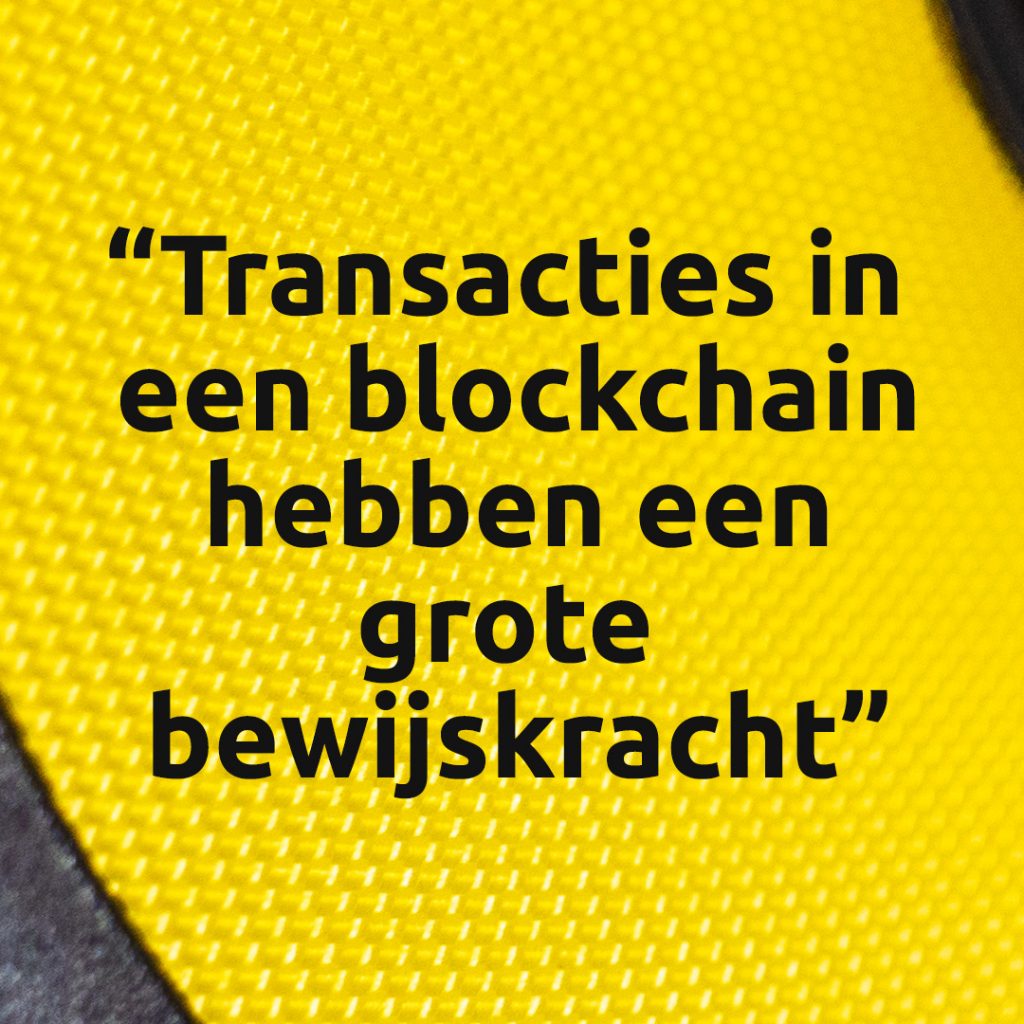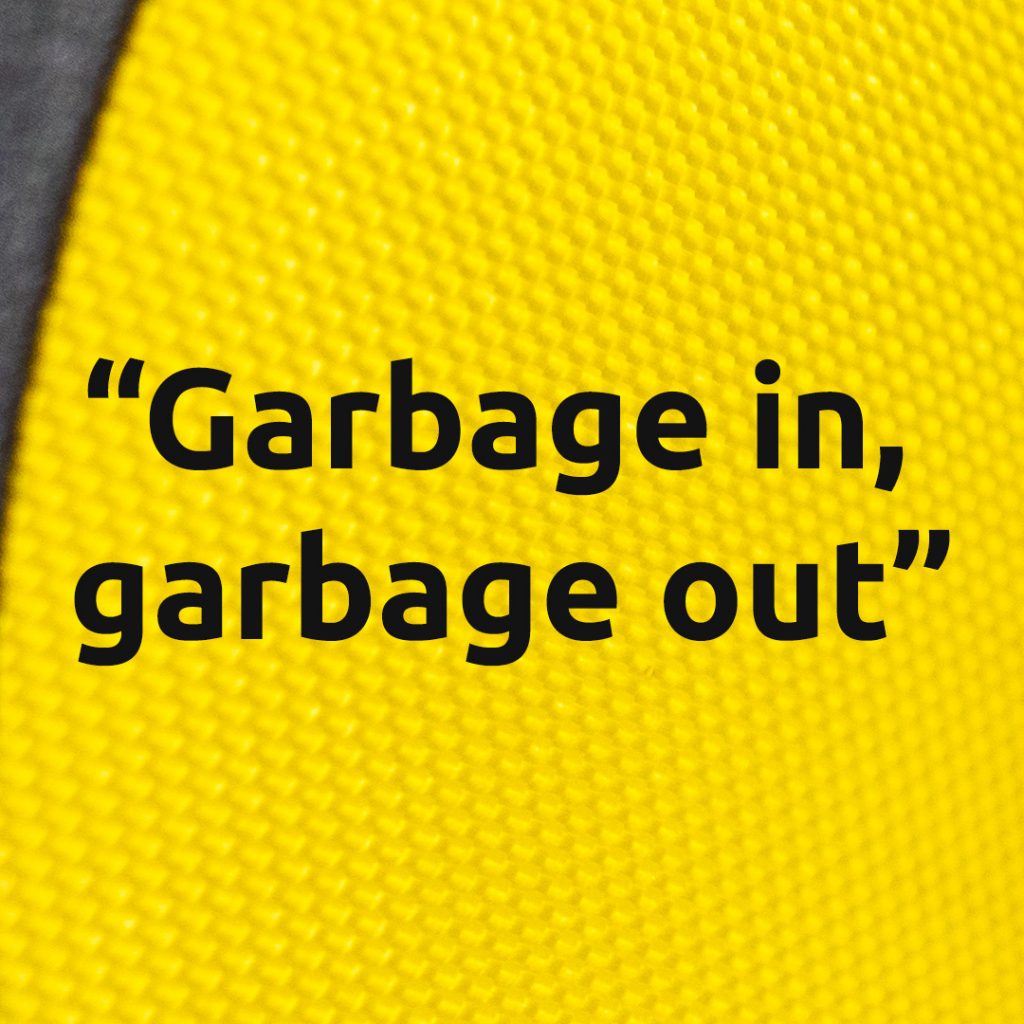Why are musicians not yet paid for their music through Blockchain? Recently, a student from the International Music Management program interviewed me about the possibilities for the use of Blockchain technology in the music industry. The main question is: What are the main (legal) obstacles for the application of Blockchain in the music industry?
Data problem in music industry
In the music industry, musicians and composers have complained for years that the payment of royalties (license fees for playing or distributing music) has been inadequate in terms of transparency and efficiency. For example, the Dutch Court of Appeal ruled that the composer of some well-known theme park (Efteling) songs was paid too little for years. In addition, there is a data problem in the music industry, because the metadata (data about music use), with which the right holders can be identified, is often untraceable or incomplete.
Blockchain is a possible solution to this problem. Imagine a large database, where royalties are automatically paid out to right holders for every download or streaming. That almost sounds too good to be true. Some Blockchain initiatives already exist in the music industry, but Blockchain has not yet made its way to the general public.
This article is about the biggest (legal) obstacles for the use of Blockchain technology in the music industry.

Is privacy law an obstacle for the use of Blockchain technology?
Many lawyers view privacy laws as an obstacle for the use of Blockchain technology, but I do not share that view. It would only be a problem if the personal data of end users (e.g. listeners, visitors) are not encrypted and are therefore visible. This risk would be eliminated if the personal data as such would not be registered in a Blockchain, but only the “interactions”, for example the amount of downloads or streams. By only including the data that is necessary for the purpose, the royalty distribution, the privacy of individuals can be better safeguarded, because personal data can be stored anonymously or encrypted (if they are even registered in a Blockchain, which is not necessary, in my opinion).
Can contracts (such as royalty payment arrangements) be better enforced with Blockchain technology?
The use of Blockchain technology can certainly make contractual arrangements more enforceable, because the transactions in a Blockchain cannot be manipulated and therefore have greater evidential value. In a Blockchain, for example, you can arrange for a fixed amount to be automatically transferred to the music artist with every download or streaming. This replaces all kinds of unclear reporting afterwards. I would prefer to rely on an automatic system that cannot be manipulated, instead of depending on the cooperation and reporting of 28 music organizations, in the European Union alone.

Are country borders a “blocking issue” for the use of Blockchain?
Collective management organizations themselves are often bound by territorial restrictions, because they have to enter into contracts with local collective management organizations in other countries. This makes them dependent on the cooperation and numbers of these other collective management organizations. Blockchain is not bound by national borders. Due to the great transparency of Blockchain transactions, no download or streaming from a Blockchain database have to be “missed”, anywhere in the world. Blockchain could therefore be suitable to manage global music rights.
Could Blockchain be used as a music register?
Due to the fact that it cannot be manipulated, a Blockchain can certainly be used as a register, for example to prove the date of creation and registration. It is necessary, however, that the first input in the blockchain is marked as ‘original’. Blockchain only guarantees the non-manipulability of the transactions, but does not guarantee the correctness of the first input. For example, can you prove that you really are the creator? Or can a “copycat” also register it? With Blockchain the following applies: “Garbage in, garbage out”. In practice, it can be difficult to demonstrate that a work is ‘original’, especially with creative works such as music.
This risk could be reduced if the music itself would be created with Blockchain technology, comparable to the “mining” of Bitcoins. However, these “Blockchain creations” do not exist yet in the music industry, to my knowledge. Until then, a central organization should still check the authenticity of the first input in a Blockchain (for example, the name of the maker, the time of registration, the correct bank account to which the royalties must be transferred, etc.). This raises the question about who this “central organization” should be, and who checks this organization.
Which legal issue is the most difficult to solve? And why?
The collective management organizations currently have a “monopoly” on the management of music rights. Musicians are dependent on the agreements these organizations have with television and radio stations, associations, streaming services such as Spotify, and collective management organizations in other countries. The musicians do not have influence or control over these arrangements. Suppose an artist decides to manage the music rights himself, then he will probably lose royalty income, because there is no ‘contract coverage’ with the television and radio stations and Spotify. But if a musician joins a collective management organization, the management of the music rights is completely out of his hands. Due to the lack of transparency about the amounts and payments of royalties, musicians may feel that they are being paid too little, and too late. That lack of trust is a problem.

Anything else you would like to share?
I believe there are multiple reasons why existing Blockchain initiatives have not been adopted on a large scale until now:
- Unknown means unloved;
- Consumer use is lagging behind;
- Current music coverage is not enough.
Unknown means unloved
Due to a lack of knowledge, fear of the unknown and lack of alternatives, most musicians only conclude an agreement with the current collective management organizations. These collective management organizations currently do not have enough “incentive” to invest a lot in Blockchain technology (because why would they invest in a technology that ultimately makes their jobs obsolete?). Once more musicians educate themselves, try out and promote Blockchain initiatives, more artists will follow their example.
Consumer use is lagging behind
Consumer use of Blockchain music platforms is not widespread yet. In order to increase consumer usage, it must be as easy to consume music on a Blockchain music platform as it is on “regular” music platforms. For consumers, the underlying technology (Blockchain) is not very relevant in itself, unless it also benefits the consumer (for example, more insight into music ). For consumers, more relevant factors seem to be: affordability, convenience and accessibility.
Music coverage is not enough
Finally, for mass adoption it is necessary that all TV stations, radio stations, streaming services, shops, catering, office buildings, etc. become familiar with and join the Blockchain music platforms, without having to pay ‘double’ for playing music (location often pay fixed amounts to collective management organizations, which depends on, for example, the number of square meters).
Suppose that in the future many musicians only want to manage their music rights via Blockchain platforms and the majority of consumers are also able to find their way to the Blockchain platforms, then the collective management organizations will eventually have to “play along”. However, that “tipping point” is not yet in sight.
As long as all of these conditions are not met, Blockchain technology remains an “outsider” in the music industry.
If you would like to know more about this topic, send me a message via the contact page.






